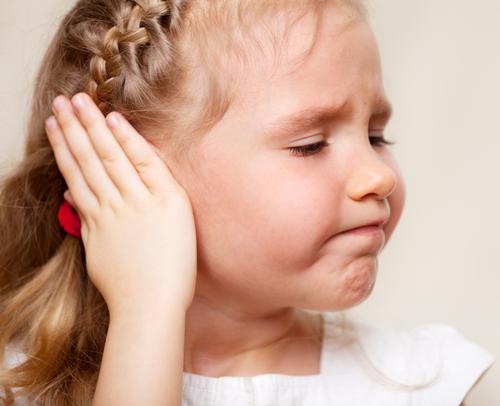My Ears Ache When Swallowing, Why?
"My ears ache when swallowing” is a common complaint among adults and children. Ear pain comes in various degrees, sometimes throbbing for hours. Fortunately, it does not mean that you have an infection or there is something wrong with your ears. Here is some information you should have if you are experiencing ear pain when swallowing.
Why Does My Ear Ache When Swallowing?
1. Symptoms and Causes
- Blockage of the Eustachian Tube
Eustachian tubes are narrow tubes that connect your throat to an air
-filled space in your ears. This space contains tiny vibrating bones that allow you to hear. Acute otitis media (middle ear infections or glue ear) is an infection that affects this space, and it is the most common infection.
Most infections in your ear are usually caused by conditions like sinus infections, colds, allergies, or the flu. Under normal conditions, the Eustachian tubes drain fluid from your middle ear. With an infection, however, the tubes may clog and not allow drainage. Fluid accumulated around such a blockage then becomes infected.
Eustachian tubes are responsible for maintaining your middle ear pressure as well. Swallowing, yawning, or sneezing opens up the tubes in order to release pressure. This is painful if you have an infected ear.
Common signs of an ear infection include:
-
Drainage of fluid from the ear
-
Ear pain
-
Low-grade fever
-
Loss of balance (in children)
-
Trouble sleeping (in children)
-
Increased irritability and/or more crying than usual (in children)
-
Loss of appetite (in children)
- Earwax
The ear is continually making and getting rid of the wax. This process can be hindered if the wax builds up and hardens, blocking the ear canal. Doctors call this impacted wax, and it can sometimes cause pain.
However, don't use objects like cotton swabs to get the wax out as this may push it further into the ear canal. Doing so may also hurt the ear and cause fluid discharge, itching, or an infection. Pushing wax further into the ear canal can also cause temporary hearing loss.
- Swimmer's Ear
If pulling on your earlobe or pushing the tiny flap in your ear causes pain, you probably have an outer ear infection. This kind of infection is caused by water trapped in the ear canal that then creates a home for germs. Your ear may also turn red, become swollen, itch, and leak pus.
- Air Pressure
Most of the time your ear does an excellent job of maintaining pressure between both sides of the eardrum. The little pop you feel whenever you swallow is part of the pressure maintenance process. Rapid air pressure changes(such as when you're in an elevator or airplane) can cause loss of balance and lead to ear pain and trouble hearing.

2. Other Causes
You might experience pain in your ears even when the source is located elsewhere - for instance, when you have a toothache. This is because of the connection between the nerves in your neck and face. It's a condition doctors call "referred pain.” Other causes of ear pain include:
- A dental abscess, impacted molars, and cavities
- Tonsillitis
- Eagle syndrome - a rare disorder that leads to recurrent pain in the face and back of the throat
- Glossopharyngeal neuralgia
- Temporomandibular joint (TMJ) dysfunction
How to Deal with Ear Pain When Swallowing
1. Home Remedies
Fortunately, ear pain usually goes away on its own without requiring medication. However, it's still helpful to know that you can treat ear pain at home using one or more of the methods listed below. Be aware that if the condition does not clear up or something goes wrong during the process of treating it, stop immediately and consult your doctor.
Warm or Cold Compresses - You can use warm compresses or ice packs to relieve some of the pain experienced whenever you swallow. This method is safe for adults and children.
Ibuprofen and Acetaminophen - These over-the-counter pain relievers control the discomfort caused by a painful ear infection called Acute Otitis Media (AOM).
Drink Lots of Water - Fluids are essential for flushing out the bacteria and viruses which are major causes of ear infections. Drink at least six glasses of various fluids such as plain water, warm water with lemon juice, herbal tea, and hot soups. However, avoid soft drinks, tea, and coffee because they'll dehydrate you.
Olive Oil - This is another popular remedy that helps relieve pain. Place a few drops in the ear canal for relief. However, do not use olive oil or eardrops if it is possible that you have a burst eardrum.
2. When Should You See a Doctor?
It's critical you are aware that the discomfort you're experiencing may be a sign that something is seriously wrong. Make sure you get in touch with a doctor if:
-
There is fluid (blood or pus) oozing out of the ear.
-
You believe there's something stuck in the ear.
-
You experience severe ear pain that suddenly stops as this could be a sign of a ruptured eardrum.
-
You are experiencing dizziness, headaches, or high fever.
-
There's swelling behind your ear and part of your face feels weak.
-
Your symptoms get worse or remain the same within 48 hours.
The Conclusion
An earache when swallowing is fairly common among both adults and children. A minor infection will usually clear up in a few days when using the tips above. In the case that it doesn't, get in touch with your doctor immediately.
Check out the video to learn more about treating painful earaches naturally.
